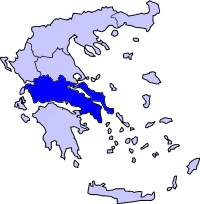Neander
with bullshit you can prove nothing
1 Thessalian are the pure Greek speakers and remember that Graikos was born there,
Although I believe comes from the Pellasgic γρουσσα -γλωττα - γρετα (language), and the virb Γρεκω (Ι speak, i unterstand)
Now the Greeks you mentiooned are The Dripoes (Druid-Druop) who were R1a carriers and lived in Phthia
who want it or Not Thessaly is the center of Greek IE language since Driopes lived there, simply the IE and the pelasgic Greek unite to create the language,
Makedonians Epirotans are Greek-Pelasgic,
Berbarian doesnot mean the one who do not speak Greek But
Bark
βαρκιζω virb means Bark -> the one who sounds like Dog's bark when he speak,
in a wide meaning non Greek speakers,
2 about theaters
READ WHO WAS THESPIS AND WERE THE FIRST THEATER WERE BUILD< AND WERE THE FIRST PLAY WERE WRITTEN
I THINK IT IS TIME TO TELL US THAT ARISTOFANES AND EYRIPIDES ARE
Illyrians or thracians
http://en.wikipedia.org/wiki/Thespis
Cause I am sure that this is what is your next word,
with total deny simply you prove your cyclopean eye
Besides Modern Albanians do not Speak Pelasgic but more Romano-Celtic
Mire jam Clear Celtic Mire
or the Thracian MARI (godess MARA) which is considered slavonic?
the words you give me belongs mostly in ancient Illyrian
now if a connection exist that proves that albanians have connection with Pelasgic Not pelasgic people were albanians
Besides the Connection
Greek ΒΡΥΘ-Ω (doric Βρουτ-ω) Vruth Vrouth
Albanian Bret ( as you said before, i don't claim th correct but in post above you said it)
LEMNEAN PHOENICIAN BRUTAS (Brutas in etrurian Brutus in latin)
so what is the difference why the lemnean can be read only in albanian? and not in raskian
simply cause you are a one eye nationalist Nazi
another
Greek Βι-ωνω Vi-ono past ΕΒΙ-ΩΣΑ eviosa
Rascian past AVIS
LEMNEAN PELASGIAN AVILS
if exist in albanian language then you make the compare
cause I 'm satisfied that Raskian and lemnean can be connected
BESIDES WE ARE NOT CERTAIN IF ILLYRIANS WERE PELASGIC AND SIMILARITY COMES FROM GREEK-PELASGIC COLONIZATION IN ILLYRIA (elements that left)
BUT WE CONNECT ILLYRIA WITH CADMUS SON, ILLYROS A FAR PAST BEFORE MYCENAE KING PELASGIAN WHO INVADE THERE as History wich you Deny (herodotus)
now if Hellenes reunite after the sea people destruction and manage to unite pelasgian tribes again what is your problem?
cause you cannot accept Herodotus whenever you like
simply Herodotus gives the connection of Ill and Ell via Cadmus a phoenician King
as also Herodotus says that Makedonians came from the same place were dorians exist and karamos was an argean
Zajaz
you make the same Mistake with Dejavu
the nation is Hellenes not Greeks
Greeks are the area from agrinio to athens and from corinth to Thessaly
THAT AREA IS GREECE
Hellenes is the nation of 4 Aeolic Doric Ionic Achaic
it is not Greek republic But Hellenic republic
Greek in Greek language means either son of Graikos
EITHER THE VIRD ΓΡΙΚΩ - ΓΡΑΙΚΩ past ΕΓΡΙΚΗΣΑ
means understand and speak
dorric language Γρουσσα (Grico people)
now if ancient doric man asks, do you speak Greek, it should say Γρικας??
Greek is the area not the nation, understand that
The nation is Hellenes
That is Greece area the area of Hellanas river
Peloponese Crete Makedonia Thessaly Epirus is Hellas




